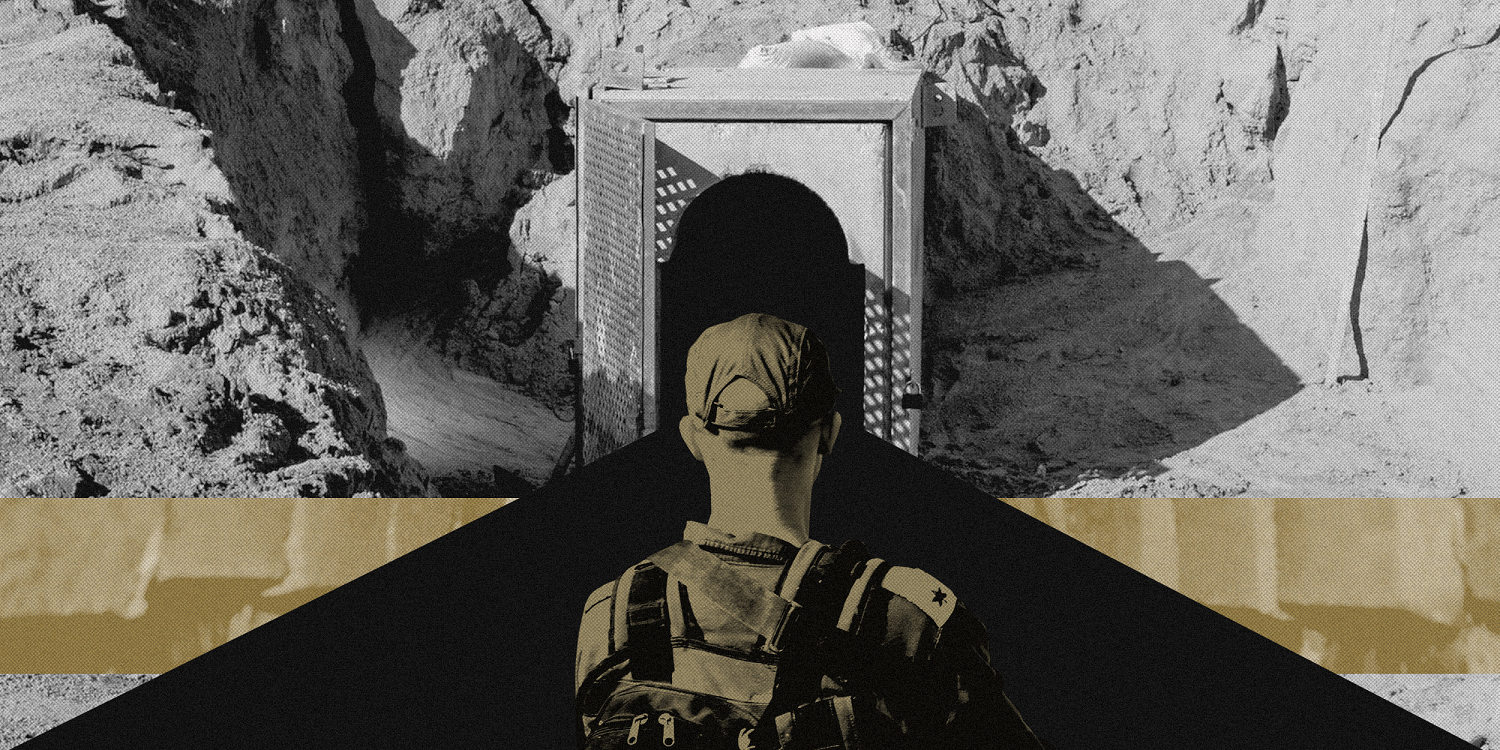In 2013, Israeli army officer Achiya Klein was crouching in the desert near the Gaza Strip watching his team drill into a 65-foot deep, mile-long Hamas tunnel, ready to shove a camera down inside, when there was an explosion.
“Most of the bomb hit my face and upper body and threw me back,” he said. “The whole mission became a rescue mission.”
The booby trap wounded six soldiers, including Klein, who was left permanently blind. But he says his time with the Israel Defense Forces’ special tunnel unit prepared him for his disability. “It’s very uncomfortable to walk inside a tunnel and to be comfortable with the unknown,” Klein said 10 years later from his home in Toronto, “but now I am doing that every day walking down the street.”
Klein’s experience highlights the dangers Israeli soldiers may face as the IDF prepares for a possible ground offensive or hostage rescue in Gaza. Military experts say Hamas’ extensive underground warren of tunnels could be a soldier’s nightmare and caution against sending any inside the stuffy, narrow passages, which are low on oxygen but full of twists and turns. Many of the high-tech advantages Israel enjoys above ground disappear when soldiers go underground.

Regular night vision goggles don’t work, communication among the IDF tunnel combatants is highly limited, and soldiers must bring their own oxygen supplies, respirators and chemical protective masks.
“It’s like being underwater,” said retired U.S. Army Lt. Gen. Mark Schwartz, who ran U.S. security coordination in Israel and the Palestinian Authority from 2019 through 2021.
Experts say soldiers who enter tunnels can quickly lose their bearings and some fall victim to vertigo, and passages can become so narrow that it’s almost impossible to turn around.
“I have been in the tunnels, and once you go down you very quickly lose all sense of direction and all sense of time,” said Daphné Richemond-Barak, an assistant professor at Israel’s Reichman University who founded the International Working Group on Subterranean Warfare and is considered to have written the most comprehensive book on the subject. “The consensus is that you only really send your soldiers in the tunnel as a measure of last resort, maybe to get hostages.”
As a possible hand-to-hand battle for Gaza looms, Klein is still urging on his successors in the IDF’s tunnel unit. “They need to make the sure the job is done,” he said. “But do not hurry and no need to take any risks.”
‘Short and shallow’
Israel’s enemies use at least four kinds of tunnels, according to experts.
Along the northern border with Lebanon, Hezbollah has used diamond-tipped drills to cut passages into rock.
Source: | This article originally belongs to Nbcnews.com










